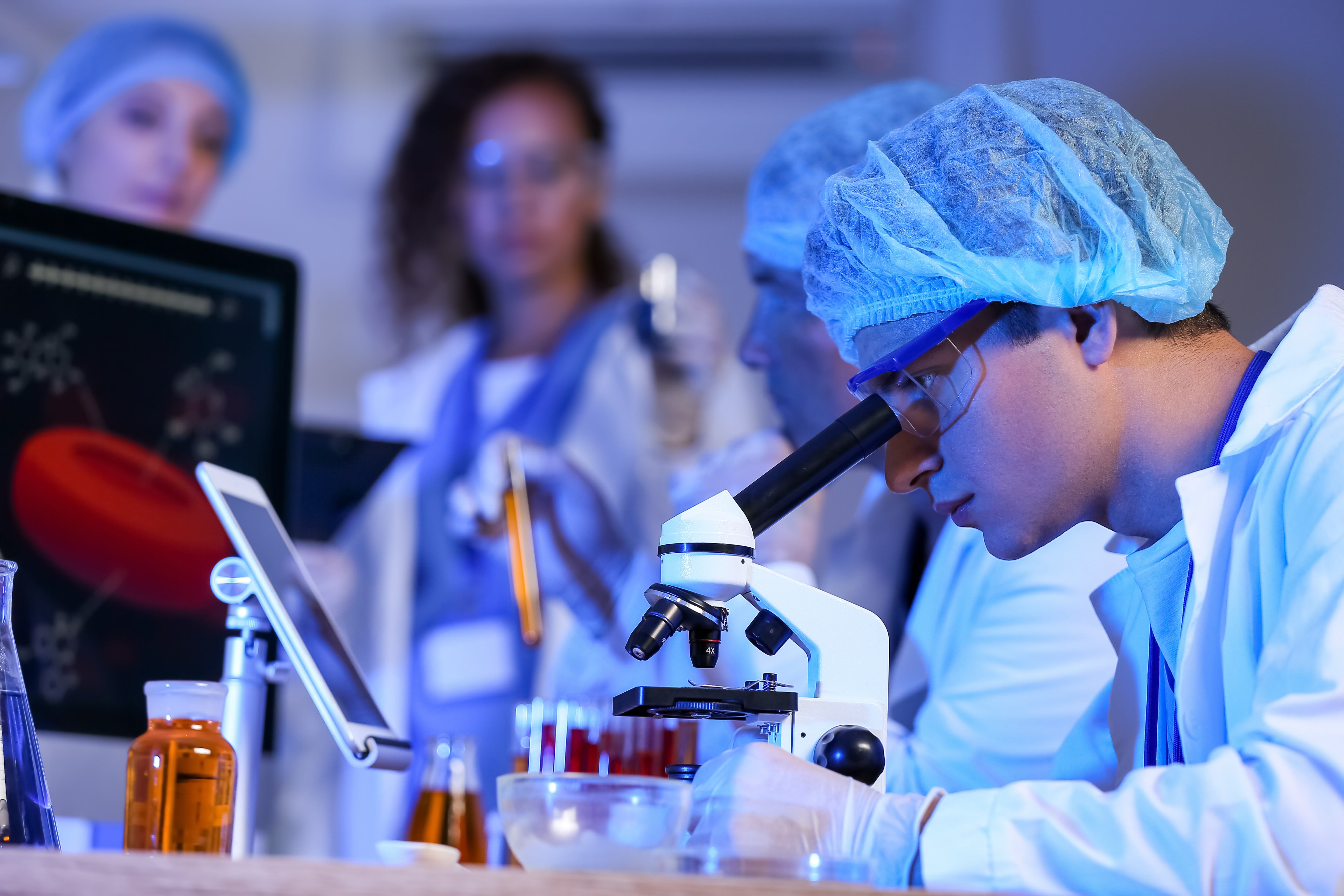Around
865,000 people work in the EU’s pharmaceutical industry developing and manufacturing specialist (e.g., cancer treatment) and generic medicines (e.g., paracetamol, amoxicillin, ibuprofen). Over 3000 pharmaceutical manufacturing sites exist across Europe, bringing about
€131 billion of Gross Added Value (GVA) to the Union’s economy. Biotechnology and biomanufacturing industries accounts for an additional €100 billion. Integrated into the pharmaceutical industry, biomanufacturing industries employ around 225,000 people.
Research and development (R&D) is key for the pharmaceutical and biomanufacturing sector, which generally outperforms others in R&D spending. In 2021,
21.5% of all industrial R&D expenditure, dedicated to the discovery and development of innovative medicines, was registered in the health industry.
The sector has provided people and societies with revolutionary, lifesaving, products. For example, synthetically developed insulin replaced pig and cow insulin, for people with diabetes, in the 1980s, improving the quality of life and drastically extending lifetimes. Similarly, in 2020 the development of RNA, first discovered in the 1960s, vaccines were pivotal to ending global confinement measures and ensuring that vulnerable populations were protected against a deadly, debilitating, infectious, disease.
With the
second largest pharmaceutical market in the word, European medicine research, development and production creates jobs, ensure patients have access to medicine, stimulates technological advancements, and fosters an environment of innovation within the European Union.
Europe’s biotechnology sector is one of the fastest growing innovative industries in the EU.
Given the research driven nature of pharmaceutical and biotechnology industries,
the sector requires a highly qualified and multi-disciplinary workforce with deep expertise in life sciences-related fields, digital technologies (AI, big data, robotics), regulatory frameworks and quality assurance and control.
References:
Copenhagen Economics,
Efpia,
Factsheets,
Medicine for Europe,
Medicine for Europe-2,
Pmc,
Research and Markets,
Research and Innovation Europe
